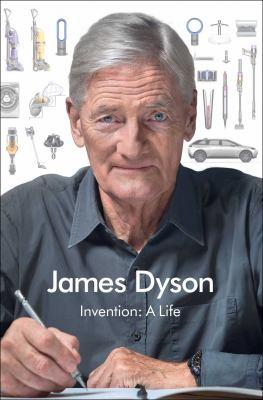
Invention : a life
Available Copies by Location
| Location | |
|---|---|
| Community Centre | Available |
Browse Related Items
- ISBN: 9781982188429
-
Physical Description
print
337 pages : illustrations (some color) ; 24 cm - Publisher [Place of publication not identified] : [publisher not identified], 2021.
Content descriptions
| General Note: | Includes index. |
Additional Information

Kirkus Review
Invention : A Life
Kirkus Reviews
Copyright (c) Kirkus Reviews, used with permission.
The British inventor and vacuum-cleaner magnate delivers a paean to creativity and creation. Now 74, Dyson grew up in a household headed by an "ever-cheerful polymath" who died of cancer when the author was a teenager. He had instilled in his young son self-reliance and the joys of experimentation and failure (if you don't fail, you don't learn). Dyson trained as an artist and industrial designer, but his real interest was to "pioneer a better solution to existing technologies and products." By his count, slogging through engineering textbooks and manuals, he failed precisely 5,127 times before coming up with the cyclonic vacuum cleaner that would separate dust and dirt from air while using as little energy as possible. The result was considerable wealth and a product so popular that Dyson's British plant could not fulfill demand, which forced him to relocate manufacturing to Asia. About this Dyson is sanguine: His company is privately held, allowing him to do as he pleases, and Europe and North America, while important markets, are less vigorous than Asia, which "is growing at three times the rate of Western economies." The author is ever the geeky scientist and engineer, as when he writes of the biological parameters of building the perfect hair dryer: "Over 230°C (450°F), hair begins to burn or melt with strong disulphide bonds breaking down quickly. The surface of the hair becomes cratered, with reflectiveness lost, leading to a reduction in shine and gloss, along with damage." His overarching point is very well taken: He makes a powerful argument that our educational systems are not giving sufficient attention to fostering creativity and the independent spirit required of the inventor, thereby stifling innovation. Against this, he has built a university combining in-class and apprenticeship learning even as he indulges in a newfound passion: farming. An entertaining and inspiring memoir by a fellow who's nearly impossible to pigeonhole--and good thing, too. Copyright (c) Kirkus Reviews, used with permission.


